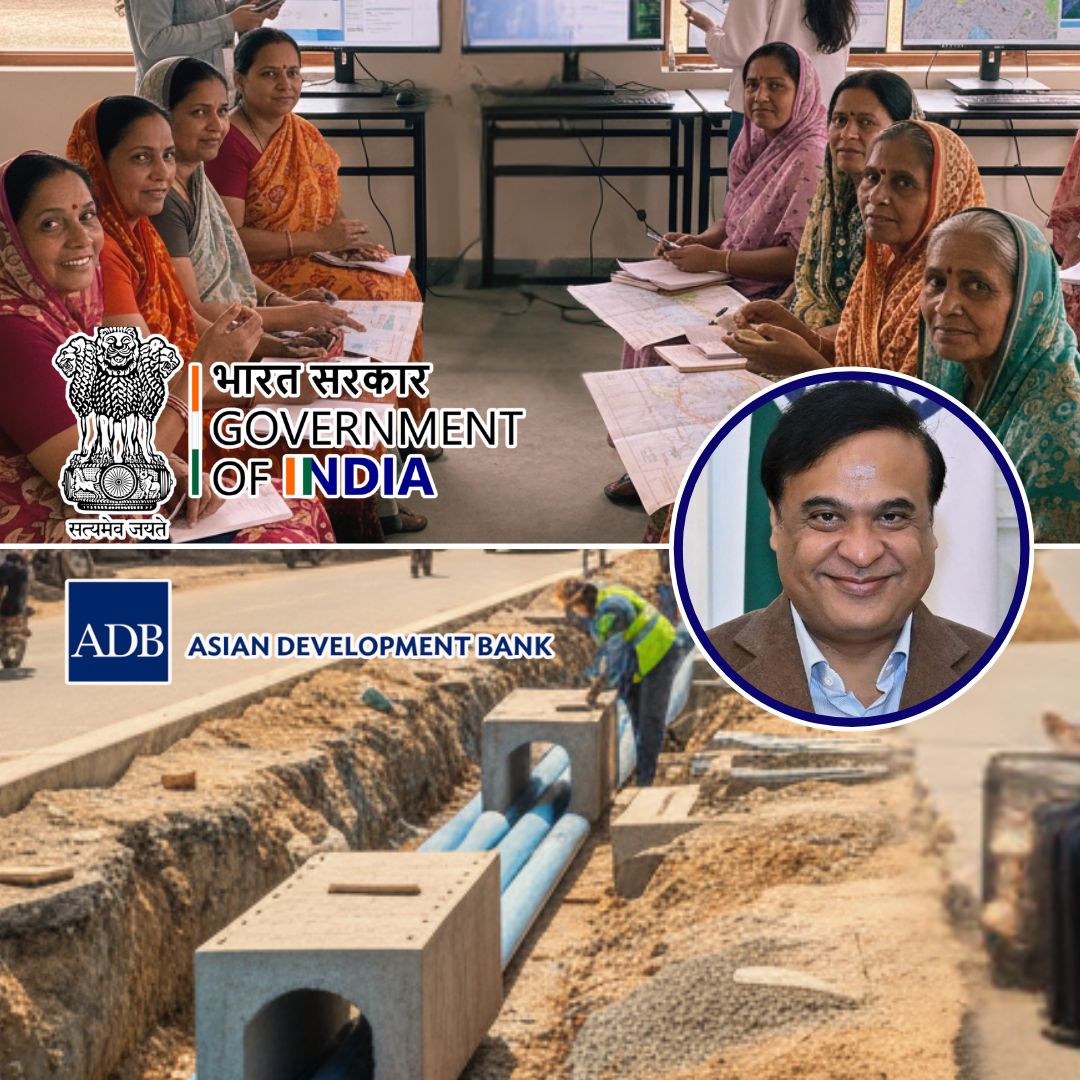The Government of India and the Asian Development Bank (ADB) have formalised a $125 million loan agreement to boost urban infrastructure in Assam, focusing on climate resilience and improved basic services. The Assam Urban Sector Development Project will upgrade water supply and stormwater management across six district headquarters, Barpeta, Bongaigaon, Dhubri, Goalpara, Golaghat, and Nalbari, as well as Guwahati, Assam’s largest city.
The project aims to benefit approximately 360,000 residents by delivering continuous metered water service through the construction of six new water treatment plants with a combined capacity of 72 million litres per day and an extensive network of 800 kilometres of distribution pipelines. Real-time monitoring systems will be installed to reduce non-revenue water losses to below 20 percent, ensuring efficient usage and conservation.
Women self-help groups will receive specialised training in water operations, internships for college-age women will be established, and school outreach programmes promoting water, sanitation, and hygiene awareness will be conducted. The initiative aims to enhance urban livability, boost climate resilience, and empower women and girls as active participants in urban development.
Strengthening Stormwater Management in Guwahati
A significant component of the project is the upgrade of stormwater infrastructure in Guwahati’s Bahini Basin, an area historically prone to flooding due to inadequate drainage.
To address this, the project includes the construction of flood diversion channels, enhancements to existing drainage networks, and the creation of a nature-based retention pond which will reduce flood discharge and improve groundwater recharge. These infrastructure improvements are designed to mitigate urban flooding risks while increasing the city’s resilience to climate change impacts.
Governance Reforms and Capacity Building
Urban governance and institutional capacity strengthening form another pillar of the project. The initiative includes the establishment of the Assam State Institute for Urban Development in collaboration with the Indian Institute of Technology Guwahati, which will serve as a centre for urban research, training, and innovation.
To improve municipal financial sustainability and efficiency in service delivery, the project will introduce GIS-based property tax databases, volumetric water tariff systems, and digital water billing across project towns. These reforms aim to empower local bodies with better tools for urban planning and revenue mobilisation, creating a foundation for sustained improvements beyond the project’s lifespan.
Social Inclusion and Gender Empowerment
With an explicit emphasis on social inclusion, the Assam Urban Sector Development Project integrates gender-focused interventions that prioritise women and girls. Training programmes for women self-help groups in water operation and management will enhance their economic participation and skill development. Internships will be made available for college-age women, fostering practical exposure to urban service sectors.
Additionally, school outreach campaigns will raise awareness about water, sanitation, and hygiene among children, building community-wide understanding and behavioural change. These efforts reflect a holistic approach that not only upgrades infrastructure but also strengthens the social fabric of Assam’s urban areas.
The Assam Urban Sector Development Project is designed for implementation over the next eight years, aiming for completion by 2033 to ensure sustained impact. It also supports studies for future urban investments with a strong climate resilience focus, aligning with national urban reforms and environmental sustainability goals.
The Logical Indian’s Perspective
The Logical Indian regards this multilateral collaboration as a forward-thinking model combining infrastructure, governance reform, and social empowerment to address urban challenges in India’s Northeast.
It represents a meaningful push toward equitable urban development and climate adaptation, urging other states to consider similarly inclusive approaches.
Government of India and ADB sign $125 million loan to upgrade urban services in #Assam
— PIB India (@PIB_India) September 23, 2025
💠Project will benefit 360,000 residents of Assam by delivering continuous metered water supply and upgrading stormwater management systems
💠Project will enhance urban livability and bolster…











